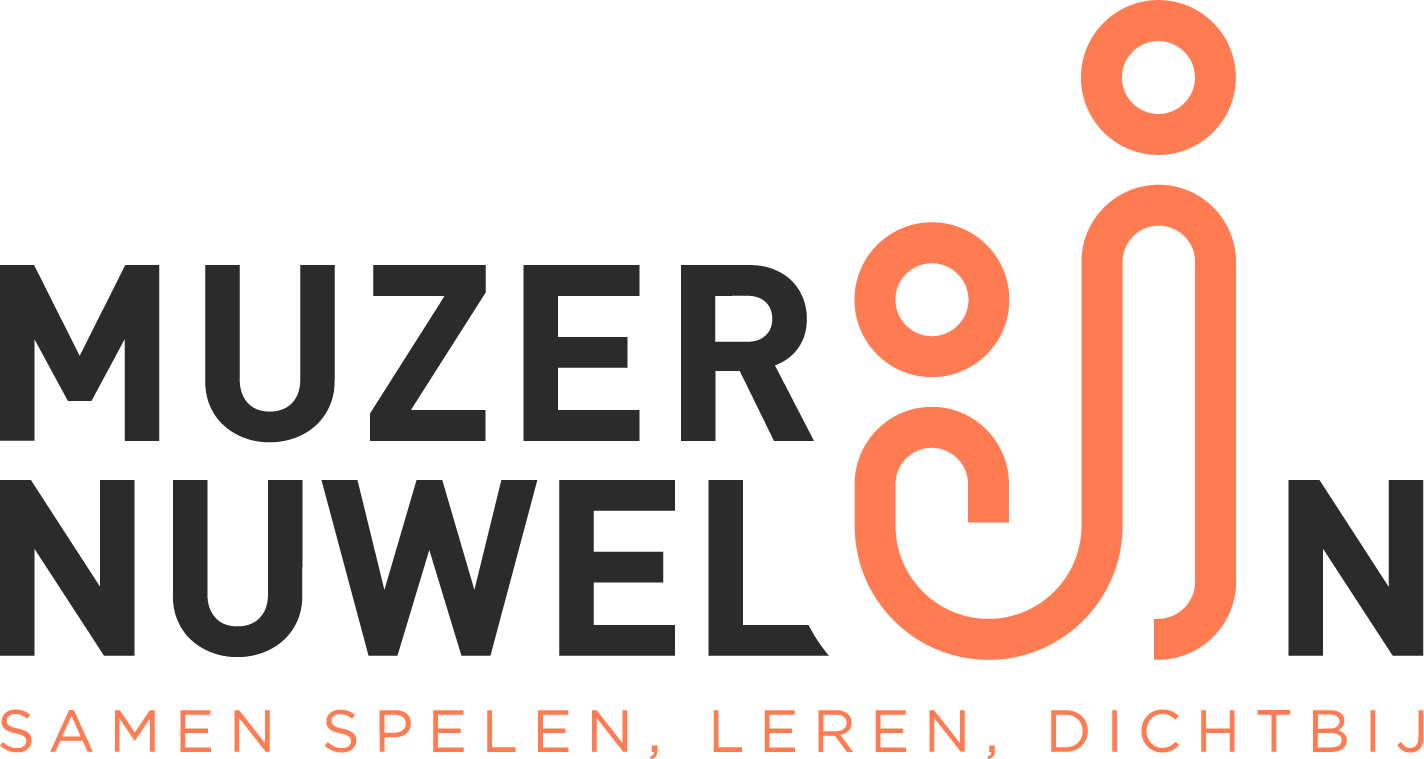


De Loefbijter is a student sailing association in Nijmegen, with nearly 200 active members. We sail for leisure and participate in competitions, but we also have a weekly borrel on Tuesdays we enjoy with beers for just one euro.
De Loefbijter currently operates an online administrative system that is fragmented and lacks cohesion, making it inefficient. Therefore, we have decided to renew the entire system by creating a Django-based project, for which a foundational structure has already been established. The task of the GiP team is to further develop this foundation and create a frontend, which will be the website.

QBayLogic is a company that specializes in offering consultancy in the field of field programmable gate arrays or FPGAs. An FPGA is an integrated circuit that can be reconfigured. This makes it possible to instantiate almost arbitrary digital circuits in side such a FPGA. Examples of this include CPUs, AI-accelerators or signal processors.
The traditional implementation method requires the use of unwieldy specialized hard ware description languages, abbreviated to HDL, such as VHDL or Verilog. These languages are verbose and lack many comforts that have become the norm in the soft ware world, such as advanced type checking, testing infrastructure and other tooling.
The founders of QBayLogic recognized that a purely functional computing model fits FPGAs like a glove and build the open source Clash-compiler. The Clash-compiler is based on the Haskell GHC compiler. This enables the compilation of Haskell to these more traditional hardware description languages. And precisely therein lies the unique value proposition of QBayLogic. Through the use of Haskell and its ecosystem many pain points of a traditional FPGA development flow are reduced. This allows QBayLogic to be a competitive partner in the FPGA design space.
Getting started with Clash has proven to be difficult for new users, especially when their experience with the Haskell ecosystem is limited or non-existent. Currently the recommended way of installing clash is given by the installation page and people are given the clash starter project as the basis for their personal projects.
Many other languages already offer an online playground that enables people to quickly test simple pieces of code. Examples of these kinds of playgrounds are:
The goal of this project is to implement a similar playground for Clash that could be used in both an educational context and for people curious to try Clash. You will get to learn what tools and configurations are required to compile Haskell into digital hardware. You will combine this knowledge with web technologies to create a user friendly web clash playground.

The department of Human Genetics (www.humangenetics.nl) performs polyclinical treatment and diagnostics of heritable diseases and is one of the largest department in genetics in Europe. Research groups in the department of genetics perform high impact research on the genetics of heritable disorders such as cancer, deafness, blindness, intellectual disabilities and developmental disorders. The division of Genome Diagnostics aims to be a frontrunner genetic testing. Therefore, they use novel data-intensive genetic technologies in order to offer the best possible diagnostics for patients. These data-intensive techniques require the development of dedicated software, automation and data management. An international team of 32 bioinformaticians and ICT developers is responsible for development, maintenance and support for these analyses at a quality level that is required for use in patient care.
Finding the (genetic) cause of a disease is a challenging task due to the complexity and amount of variation in the genome. Every genome of a patient has +- 5 millions variants of which only one is disease causing.
Using various methods the amount of variants can be greatly reduced. One of these methods is checking if a variant also has been interpreted in another patient. The result of this interpretation is called a classified variant and is stored in the Classification Database.
The main goal of this project is to upgrade the technology stack to current standards. The datamodel also needs to be redesigned to better fit additional functional requirements gathered over the last years. This also means a data migration to the new structure.

Planet+Partners exists to make the world sustainable, by helping large organizations reduce CO2 emissions, prevent pollution, re-use materials, restore nature and support people. Examples of
clients are Radboud University, Utrecht University, municipality of Utrecht, Maasdam Flooring, Sunrise Medical and NTP Infra. We help focus on the most important impacts, measure sustainability of suppliers and monitor progress. There is a law - called the CSRD - that makes this mandatory for large companies. +SCANS is our tool to support our CSRD services. With the software, the RU can compare, benchmark and monitor suppliers based on their scores.
+SCANS by Planet+ helps measuring and monitoring the sustainability and circularity of organisations, products, and services. GiPHouse developed this system since 2015 (!) as a web application in Laravel. In 2022, 2023 and 2024, GiPHouse made a new codebase from scratch, using Python and Django. A lot of attention was given to code quality and documentation. This new version of +SCANS is already operational but still needs work to be able to replace the former version.The old +SCANS is still operational. This can serve as an example for features and modules of the new system. And we are open to ideas for cool stuff!

Sue is a cloud-native consultancy company, we believe in the power of technology to drive change. We are not just IT experts; we are guiding companies toward excellence in the digital age. Our passion lies in the cloud, where we thrive in building and maintain infrastructure for a wide range of customers such as the Dutch Police, ASML, NXP and more.
For consultancy we match the CV’s of our consultants with the requirements in the vacancy. This requires manual labour to check if there is a match and update the CV to make sure all requirements are described in the CV. To save time we would like to automate this process. The software solution should match our resumes to the vacancies we get in via various sources (online, software tools, email). The should tool indicates whether there is a match and whether all the requested requirements are reflected in the CV, both on skills and certification level as being described in the experience part of the CV. On top of that, it would be interesting for the tool to also create a cover letter based on this information.

Visma Circle is one of the company’s in the big Visma family of SaaS companies and together we are the biggest SaaS company of Europe. The nice thing about working within Visma is that we can help each other through all kinds of cross company communities and share knowledge. Visma Circle's core product is the SaaS platform Djuma with case management and customer service portal(DigiD, e-Herkenning) support. Djuma is used by municipalities, provinces, water authorities, and educational institutions. In addition to the Djuma platform, Visma Circle offers a number of niche apps. These apps are Djuma Zaken, Djuma KCS, Djuma OpenInfo(publication platform) and Djuma Teams. Furthermore, Djumalytics and Digital Signatures function as additional features within Djuma.
This year we build on an AI strategy within our products and we want to create an AI assistant that supports our users at daily tasks on the Djuma platform. We know AI can hallucinate and can have bias, therefore we scoped our project as a playground where we can explore the capabilities and validate with our customers. As a user of Djuma, I want access to a chatbot with its own copilot functionalities, DjumAI, trained on the Djuma data for which I am authorized, to reduce my time spent searching, increase my adaptation in Djuma, and improve my satisfaction.

PubHubs is a community platform based on public values. In some cases it can be an alternative to the so called Social Media. More precise: for public organisations that need a safe online space for their communities without handing over all kinds of information to commercial parties with other (than public) goals.
PubHubs is a platform with several Hubs. Where a Hub can be a community of a public organisation, for example a public broadcaster, a public library, schools, patient organisations, local sportsclubs, etc. Inside a Hub there are several so called `rooms`. A room can be a chat, a forum or anything else that can work with the event-system of the Matrix protocol. Also a room can be secured in the sense that only users with specific attributes can enter, for example users with an age above 18, users with some kind of email address, users whose address has a zipcode from a list of given zipcodes etc.
The PubHubs infrastructure consists of a central server and several Hub-servers. The PubHubs central server is responsible for authenticating end-users and keeping track of connected Hubs, but it does not know anything about what is happening inside the hubs. On the other hand, the Hub-servers know nothing about the users (except there existence) or other hubs. Every Hub-server is run by its own organisation which is responsible for the content and behaviour of their users. At the moment a Hub-server is an adapted Matrix homeserver. PubHubs makes use of the Yivi app (www.yivi.app) for authenticating and disclosing attributes (for secured rooms).
At the moment Pubhubs only offers one kind of room: a room where the users can share messages, images or files and where they can reply to each other in a single reply or in a thread (the latter being momentarily in development).
What PubHubs would like to add is a type of room that functions as a forum. A room where someone can raise questions or any other topic and users can answer that and/or give their thumbs up or down.

Acture is the largest private executor of Dutch social welfare, employing case managers to help employees get back to work after falling ill. Our core belief is that work is the best form of financial security. To aid our case managers in focussing their time on contact with employees, we aim for innovation in automating administrative busywork.
At Acture we have many tools that automate administrative processes in the organization. Examples include automated distribution of incoming mail to the right case managers and a virtual assistant that aids case managers in prioritizing and planning tasks. These tools need to be coordinated to run at different times of day and different days of the week, primarily at night so as to not conflict with the systems used in the organization.
Due to stability issues, we are currently porting and containerizing these tools to execute them remotely in Azure. As this takes time, we now face the problem of needing to orchestrate workflows in hybrid execution environments: some tools need to be executed ‘locally’ on the existing VM, while already ported/containerized tools should be executed in a remote environment (e.g., a web app, container instance, or Kubernetes). Ideally we could keep the orchestration centralized, meaning we can choose the execution environment for every task separately, within a single orchestration tool. The orchestration tool to be developed or implemented by the GiPHouse students would act as a control chamber, scheduling the execution of our tools in Azure and on a local machine.

Stichting Muzerij Nuwelijn is the managing organisation for 5 primary schools and 5 pre-school locations in the region Gilze-Rijen. The organisation is a non-profit organisation, funded by the government. We currently have 120+ employees and 1200+ students from the age of 0-13. The organisation has a single IT-specialist for operations, privacy, cybersecurity and 3rd line support. We have outsourced our 1st and 2nd line support.
Our IT-specialist is too busy working on policies that often he don’t get the chance to quickly respond to questions asked by employees of the schools and our IT-support is often taking too long to respond by mail or by phone. A chatbot is needed to take over some of the tasks of the IT-specialist and IT-support.

The Right Direction is a single man shop now active for around almost 6 years in the field of geospatial software development and primarily active at customers with Esri ArcGIS-software. We do basically only custom software for those customers. Beside the custom software development we do build and sell two products to our customers, KLIC Genius and Portal Genius. In November 2024 we won the GeoInfo Nederland GeoPrestige Award.
KLIC Genius is a SAAS-product for the conversion of a specific datamodel which is always delivered in the same data-format to different other formats and the most used one is Esri ArcGIS services.
Currently our end users do use a Windows Desktop-app to manage their conversions. But that was from day one a temporary solution. Our roadmap for 2025 is to replace it by a webapplication so KLIC Genius is a truly SAAS-product. As every SAAS-product also ours consist of a backend part and front-end. The backend is at the moment out-of-scope. We will deliver a development-environment and we will make probably a small part of the back-end available for the students to extend.

Foundation Je Leefstijl Als Medicijn (Your Lifestyle As Medicine, JLAM) is a Dutch Public Benefit Organization (ANBI) [link]. Our mission is to reverse the pandemic of chronic diseases (such as diabetes, heart attacks, and strokes), mental health issues (such as anxiety and depression), and neurological disorders (such as dementia and Parkinson’s)..
The healthcare system primarily treats symptoms without addressing one of their root causes: metabolic dysfunction from poor lifestyle choices (e.g., eating too much processed food). Therefore, treatments often have limited success, e.g., anti-depressants work hardly any better than placebo (fake) medicines (McCormack, 2018).
We target people with or without chronic conditions who seek to become and stay healthy and increase their health span. We target people of all ages, e.g. young people with mental health issues, middle aged people who are concerned with the health of their children, and older people with or without chronic illnesses. We offer information, practical tools, expertise of medical professionals, support groups and coaches who have reversed their own health.
Our website attracts 600,000 visitors annually. We support 17,000 people in nine online support groups aimed to reverse their chronic conditions. We have launched the first AI lifestyle chatbot in the Netherlands, Lampie, and aim to grow rapidly to millions of visitors, enabling them to improve their health and well-being.
The Metabolic Dashboard provides a platform for conducting N-of-1 experiments, allowing users to measure, analyse, and manage biomarkers to prevent and control health conditions. It enables individuals to compare results with peers and receive scientifically backed advice. This platform is ideal for those who wish to influence their health through lifestyle changes, especially in eating habits, rather than relying solely on limited-time interactions with doctors.
For example, a Type 2 diabetes patient can use a lifestyle diary to observe the impact of dietary choices on their condition through markers such as weight, waist size and glucose levels. The platform helps users track these levels, offers guidance for suboptimal readings, and ensures optimal intake for best results.

BlueConic is a leading customer data platform (CDP) that empowers companies to unify and activate their customer data to deliver personalized experiences across all touchpoints. By enabling marketers and customer experience professionals to gain a unified view of their customers, BlueConic drives engagement, improves customer loyalty, and increases revenue.
Many customers integrate BlueConic's SDKs into their mobile applications across various platforms: Android, iOS, and React Native. However, without clear, practical examples, customers face challenges leveraging these SDKs effectively. This can slow down development,
limit functionality, and impede showcasing SDK capabilities in real-world applications.
To prevent this, you will be developing demo applications for Android, iOS and React Native.
Wouter van Orsouw is a mathematics teacher and tutor for the bachelor Mathematics.
Jan Schoone is a PhD-candidate at Digital Security with a background in (theoretical) mathematics. We are both music enthusiasts and avid record collectors who are looking for a database to structure our collections.
For almost ten years we have been looking for a database that stores our music carrier information (CD’s, vinyl records, etc.) with some specific requirements. As it does not appear to exist in the form we would like, and we cannot make it ourselves, we apply to the GIPHouse project.
We are looking for a simple and easy-to-use User Interface with some requirements on the input fields for the database as well as certain outputs that can be automatically generated using the database.

HFML-FELIX is a large research facility at Radboud University, it consists of a laser department and a laboratory which houses very strong magnets. Fundamental physic research is done in the magnet's core. With Nifti we want to use the knowledge of magnetic fields to develop a levitated transport system. Nifti is a collaboration between Radboud university and HAN University of applied sciences (Automotive). Nifti stands for: National individual floating transport infrastructure.
Nifti is a silent, sustainable and inclusive transport system that uses magnetic levitation for propulsion. A series of electromagnetic coils, embedded in the road repel permanent magnets that are placed in a base which can be used for personal or freight transport.
With Nifti we want the same maneuverability as a car. For that we need to control all 6 degrees of freedom of the pod. The main goal for this project is to get a stable levitated pod. After that we will try to move the pod in a desired direction.

AeroCount is a spin-off company of the Radboud University. We help municipalities by measuring air quality to get local inside about the air quality and emission sources. Currently we measure PM10, PM2.5 (particulate matter) and NO2 for them, and we will add PM0.1/UFP (ultra fine particles).
The goal is to give citizens the means to perform reliable measurements themselves, with advanced software interpreting the collected data and presenting it in an understandable way. Although several hardware solutions are already available, they are not always widely available or accessible to citizens. Our focus is on developing innovative software for analysis, but the required hardware and the integration of hard- and software must also be considered, so that the result is a complete and scalable solution.

XLRIT is an innovative Dutch company founded in 2018. XLRIT is able to create professional software solutions in a fraction of the time it would normally be possible. XLRIT is able to do that because they use:
Part of this platform is a runtime environment with a multitude of reusable functionality types that can be called upon by the generated source code to provide the functionality to the end-users of the created software solution.
More details can be found on https://www.xlrit.com/.
XLRIT produces many types of software solutions. In 2025 we aim to include software solutions that somehow resolve optimization problems in specific domains. For instance optimizing how big packages should be placed and stacked in a warehouse or a cylinder in such a way that it best scores on certain rules.
In this project you will investigate which problem solving tools and techniques are available and can be used to solve these kinds of optimization problems. If possible this project also includes creating visual representations of solutions, such as a 3-D model of placed and stacked packages in a room.

Storm is a powerful open-source probabilistic model checker, which is a tool for proving that systems behave correctly with a with a probability. Often, one cannot completely avoid unwanted behaviour, but still want to assure that this behaviour is unlikely. Probabilistic model checking can be used for cloud computing, human cell conversion, or to analyse sport tactics. Storm is being developed at the Radboud University in Nijmegen, the RWTH Aachen and TU Eindhoven.
While it supports many different types of models, algorithms, and input languages, Storm is not beginner-friendly. We are trying to alleviate this with stormvogel, which is a user-friendly Python library with which users can prototype models, analyze them using Storm, and interactively visualize the results. To provide a very low barrier to using stormvogel, the idea for the project stormvogel playground is to provide a website where the user can try out and use stormvogel and stormpy (Storm’s direct Python bindings) immediately without installing anything.

At the Adaptive Learning Lab we focus on the synergy of adaptive learning technologies, self-regulated learning, and the integration of data, learning analytics, and Artificial Intelligence in education. We explore the evolving interaction between humans and technical systems, particularly within the context of one device per student. Our goal is to unravel the intricate complexities of human-system interaction in education using systematic approaches.
Currently, members of the ALLab spend considerable time developing and/or maintaining user-facing applications and back-end infrastructure. We would like GiPHouse to revamp our back-end infrastructure, integrate the new back-end with existing user-facing applications, and develop an additional user-facing application.
The existing user-facing application is our Learning Path App (LPA), which we deploy in classrooms around the Netherlands to support middle-school students in developing their self-regulated learning skills. We would like to complement the LPA with a teacher-dashboard, which summarizes the information collected by the LPA, allowing teachers to draw actionable insights in real-time.

Radboudumc and Radboud University have an ambitious policy in the field of sustainability. Biodiversity is part of this. The objectives in the field of biodiversity are expressed in a biodiversity policy. To implement this biodiversity policy, a biodiversity project group is active. This consists of stakeholders from Radboud university medical center and Radboud University. The Occupational Health and Safety Service (AMD) supports this project group with substantive advice. The substantive contacts with Giphouse for this project will be with AMD, Guido van Gemert. The contract agreements are made through Margot Janssen, chair of the biodiversity project group.
In addition to global climate change, biodiversity loss is a global crisis. The latter certainly also applies in the Netherlands and a solution for biodiversity loss is still far from available. The university and hospital recognize this problem and take responsibility for it in research, education and their own business operations. A biodiversity policy has been established by RU and UMC in which one of the pillars is improving the relationship between people and nature. This relationship no longer appears to function properly and is one of the causes of biodiversity loss.
With the Tree Tinder project we want to bring students and employees into contact with nature on their own property, in this case the trees, in a fun way. There are about 6,000 trees on campus, but who really knows them? Trees are also living things and important for biodiversity. For example, they provide housing and food for birds, insects, fungi and mosses and they provide cooling and clean outdoor air for people. Different types of trees each do this in their own way. How do you easily come into contact with such a tree? Just like you can easily get in touch with another person via Tinder, but for trees.
A lot of data about all trees on our campus is available, but this information is not easily available. Last year, a first version of https://dateatree.com was developed by GiPHouse, presenting data from an existing data base of trees on our campus. This year, we would like to improve this product.

At Verbelco, a hydrological data company, we support nature management organizations in measuring groundwater and surface water levels by providing both the necessary physical infrastructure and specialized software. Our web-based platform, WaterWeb, allows clients to monitor water data effectively, enabling them to take action whenever necessary.
Water levels are recorded either by sensors or manually by volunteers, each responsible for monitoring one or more monitoring nets. To streamline data entry for volunteers, Verbelco developed the VeldApp. The current VeldApp is a progressive web app that allows users, primarily older volunteers, to submit water level measurements, location photos, and repair requests for measurement points directly to WaterWeb. However, the current version is outdated and difficult to maintain. We plan to rebuild the app from the ground up to ensure it is sustainable and future-ready, retaining existing functionality with potential enhancements.